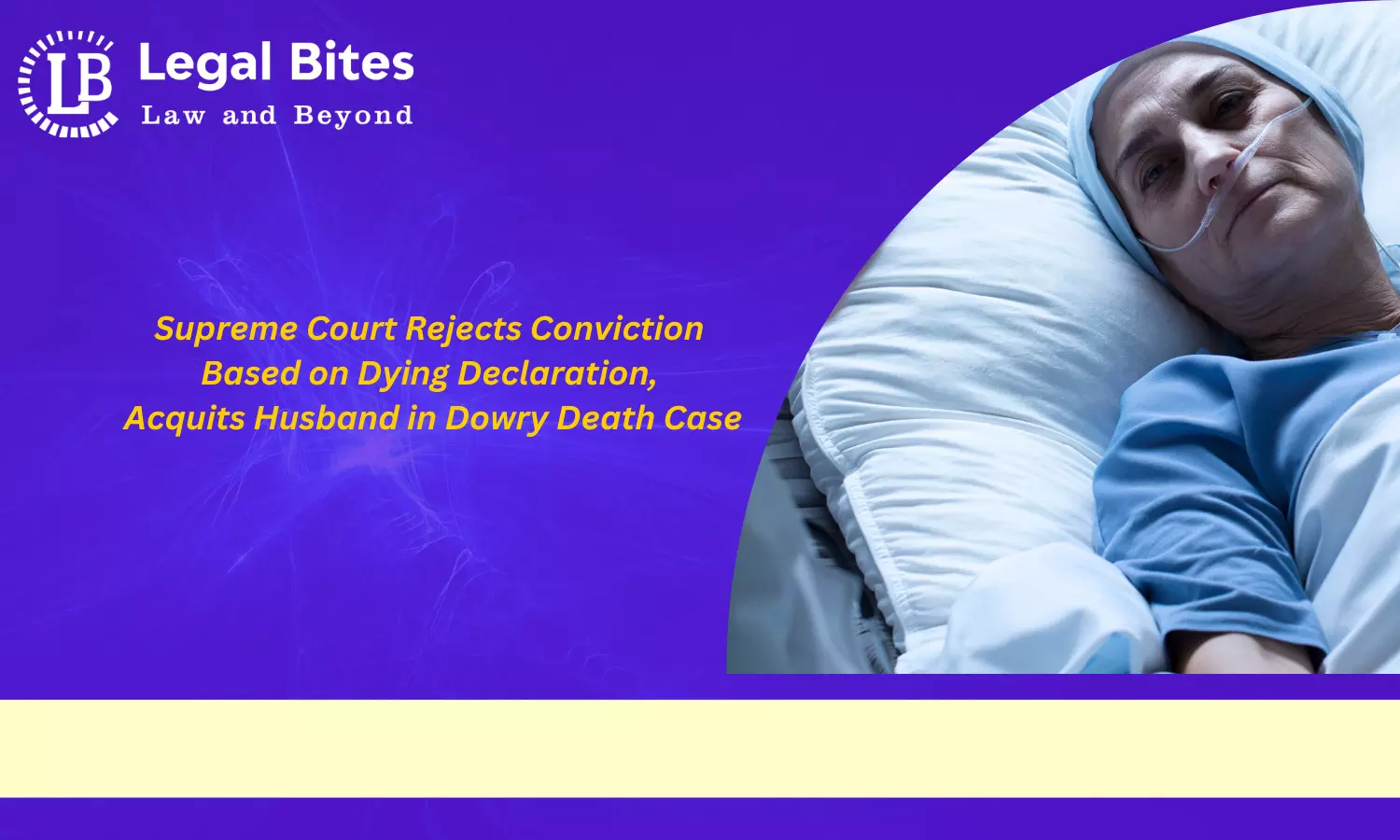Supreme Court Rejects Conviction Based on Dying Declaration, Acquits Husband in Dowry Death Case
The Supreme Court stated that a dying declaration that had been discarded by the court could not be the sole basis for convicting another accused in the same matter.

Supreme Court Rejects Conviction Based on Dying Declaration, Acquits Husband in Dowry Death Case
The Supreme Court of India has underscored the importance of relying on trustworthy evidence when determining convictions in criminal cases. The apex court's decision came in the case of Phulel Singh vs. State of Haryana, where it was established that a dying declaration that had been discarded by the court could not be the sole basis for convicting another accused in the same matter.
A bench comprising Justices BR Gavai, PS Narasimha, and Prashant Kumar Mishra examined the case, where a dying declaration made by a woman was used to convict her husband while being disbelieved when it came to assessing allegations against the father-in-law.
The court observed, "In the totality of the circumstances, it cannot be said that the dying declaration (Ex. P.L.) is free from doubt. The most glaring aspect that is required to be considered is that the High Court itself has disbelieved the dying declaration insofar as Jora Singh, father-in-law of the deceased is concerned. We fail to understand as to how the same dying declaration could have been made basis for conviction of the appellant when the same was disbelieved insofar as another accused is concerned."
As a result, the Supreme Court concluded that the credibility of the deceased woman's dying declaration was not beyond doubt and subsequently acquitted the husband of all charges.
The case stemmed from a 2009 judgment by the Punjab and Haryana High Court, which upheld the dowry death conviction and seven-year jail sentence of the husband. Notably, the trial court had acquitted the husband's parents in 1999 but convicted the husband.
The Supreme Court emphasized that for a conviction based on a dying declaration, the courts must be satisfied that the statement is trustworthy, reliable, and inspires confidence. In this instance, the Supreme Court found that the dying declaration lacked these essential qualities.
The Court pointed out, "There is a grave doubt as to whether the dying declaration recorded by Shri Sadhu Singh (PW-5), Executive Magistrate was a voluntary one or tutored at the instance of respondent No.5 ... Dr Jasmeet Singh Dhir (PW-7) has stated ... that the deceased had also narrated that her husband had extinguished fire by pouring water on her."
Given these inconsistencies and doubts, the Supreme Court concluded that the prosecution had not established its case beyond reasonable doubt. Consequently, the appeal was allowed, and the accused husband was acquitted.
The appellant, Phulel Singh, was represented by Senior Advocate Rajul Bhargav, along with advocates Rajiv K Garg, Ashish Garg, Lalit Nagar, and TL Garg. On the other side, advocates Samar Vijay Singh, Raj Singh Rana, Keshav Mittal, Sabarni Som, Aman Dev Sharma, and Pankaj Kumar Singh appeared for the Haryana government.
Click Here for Detailed Information

